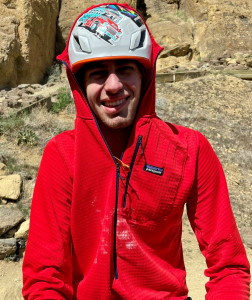In the Bioethics Capstone Integration Seminar (BIOE 400) students are able to choose what kind of final project or paper best helps them pull together (or integrate) the various strands of their course work in the Bioethics Program, along with their distinct majors and career trajectories. We are pleased to showcase here, for the first time, the work of the students in BIOE 400 for Spring 2021. Some of the projects are collaborative works, and others are independent.
Most of the 2021 capstone students were interested in creating their idea of a course they wish had been taught in the Bioethics Program at Puget Sound. In the links below, you can find detailed course syllabi, including readings, and course assignments, for a wide variety of topics. Two students in BIOE 400 opted to write a “manifesto,” in which an ethical injustice in health care is identified, thoroughly researched, and proposals for change are given; it is a tremendously compelling piece of writing.
I am proud of the creations of all these students, and hope you learn as much as I did from their ambitious work. Perhaps one day, one of them will return to teach one of these courses!
— Professor Suzanne Holland, Director of the Bioethics Program
|
BIOE 232: Tracing Segregation in US Public Health by Zachary Herrmann '22 |

|
||
|
BIOE 330: Biotechnology Ethics by Shani Zelenko '22 & Aldrin Villahermosa II '21 |

|

|
|
|
by Ashley Brauning '21, Sam Barnwell '21 & Amber Ikeler '21 |

|

|

|
|
BIOE 394: The Ethics of Sexual Education by Quentin Hubbard '21 & Sydney Sukhdeo '21 |

|

|
|
|
BIOE 399: Clinical Ethics: Experiencing and Exploring Hospital Ethics in the United States by Jake Burnham '22 |

|
||
|
CONN 300: Media, Markets, and Meaning in the Age of Artificial Intelligence by Darian Gill '21 |

|
||
|
by Kelby Hunt '21 & Maiya Pacleb '21 |

|

|
|
BIOE 400 Bioethics Integration Seminar
BIOE 400 is the capstone course required of all students who aim to attain the Interdisciplinary curricular designation of Emphasis in Bioethics on the transcript upon graduation. In this senior seminar students pull together the ethical implications of the courses they have taken toward the BE designation. Students individually or collaboratively examine a bioethical case issue from the variety of disciplinary perspectives that comprise the program in an attempt to understand the full complexity of the issue. The course rotates among Bioethics Program core faculty from different disciplines, who will help model for students the challenges and promises of cross-disciplinary integration on particular issues of relevance. The following themes serve as semester-long focal points depending on which of the core faculty is teaching the course in any given year: Moral Philosophy, Ethics of Research, Narrative Medicine, Health Inequalities, Patient/Physician Interactions, Animal Models in Science & Art, Emerging Technologies in Science & Ethics.